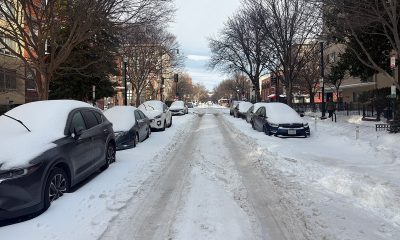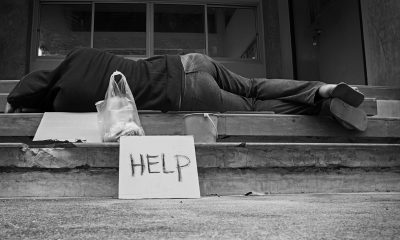News
143 Dems to Trump: Reconsider the ‘indefensible’ trans military ban
Lawmakers make the case Trump policy won’t hold up in court
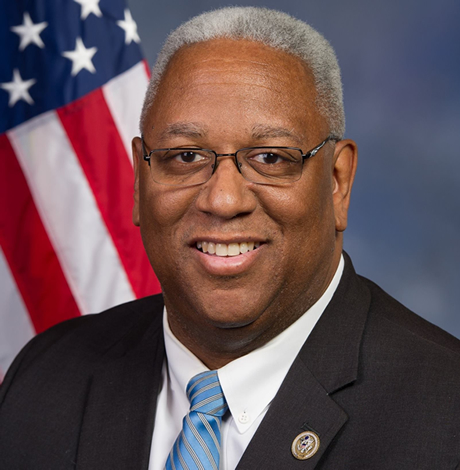
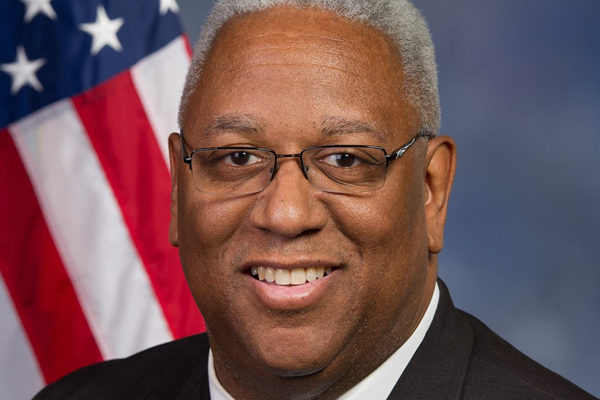
Rep. Donald McEachin (D-Va.) is leading House Democrats in calling on President Trump to reconsider his trans military ban. (Photo public domain)
In the wake of President Trump making good on his pledge to ban transgender people from the U.S. military, 143 House Democrats led by Rep. A. Donald McEachin (D-Va.) are calling on him to “reconsider the ill-advised and indefensible policy.”
In a letter dated Aug. 29, the lawmakers dispute assertions transgender people would be a “disruption” to the military service — an argument Trump made in his memo directing the Pentagon to enact the ban.
“Rather, their sacrifices have made our nation safer and stronger,” the letter says. “Transgender service members wear the same uniform and complete the same missions as their cisgender peers. In combat, their lives are in equal peril. They serve with equal distinction; they are equally deserving of our gratitude and respect.”
Signers of the letter include members of the Democratic caucus: House Minority Whip Steny Hoyer (D-Md.), Assistant Democratic Leader James Clyburn (D-S.C.) and Chair of the Democratic Caucus Joseph Crowley (D-N.Y.). Other signers are Rep. Joseph Kennedy III (D-Mass.), chair of the Transgender Task Force, and Rep. Pramila Jayapal (D-Wash.). No Republicans are among the signers.
“Implicitly, your ban denies the value of transgender service members, and it questions the professionalism of those who serve beside them,” the letter says. “Our Armed Forces have grown more equal and more inclusive over time, often in the face of strident opposition. In 1948, when President Truman moved to racially integrate the military, voices were raised in protest. They were raised again in 2010, when Congress at last repealed ‘Don’t Ask, Don’t Tell.’ At every turn, those voices have been proven wrong.”
The House Democrats’ objection to Trump’s transgender military ban is consistent with unified opposition from the caucus to an amendment proposed by Rep. Vicky Hartzler (R-Mo.) that would have barred U.S. military payment for transition-related health care, including hormone therapy and gender reassignment surgery. The amendment was defeated on the House floor on a bipartisan basis before Trump banned transgender people from the military outright.
Trump issued his memo directing the U.S. military to ban transgender people from the armed forces on Friday, making good on his pledge via Twitter to bar them from the military “in any capacity.” Three lawsuits from LGBT legal groups are now pending before various federal courts seeking to overturn the policy.
With litigation underway, the letter from Democrats makes the case the trans military ban won’t hold up in court, calling the policy “indefensible.”
“We are deeply concerned about the clear unconstitutionality of your ban,” the letter says. “As existing case law makes clear, the government cannot discriminate against transgender people on the basis of their status or sex – and the military is not exempt from constitutional requirements. It is not clear to us that your administration has reckoned with these realities.”
A White House spokesperson had no comment in response to the letter said Trump stands behind his memo. Trump has defended his plan to ban transgender people by saying he’s doing the military “a favor” while making the (incorrect) claim he enjoys considerable support from the LGBT community.
Local
Local LGBTQ groups, activists to commemorate Black History Month
Rayceen Pendarvis to moderate Dupont Underground panel on Sunday
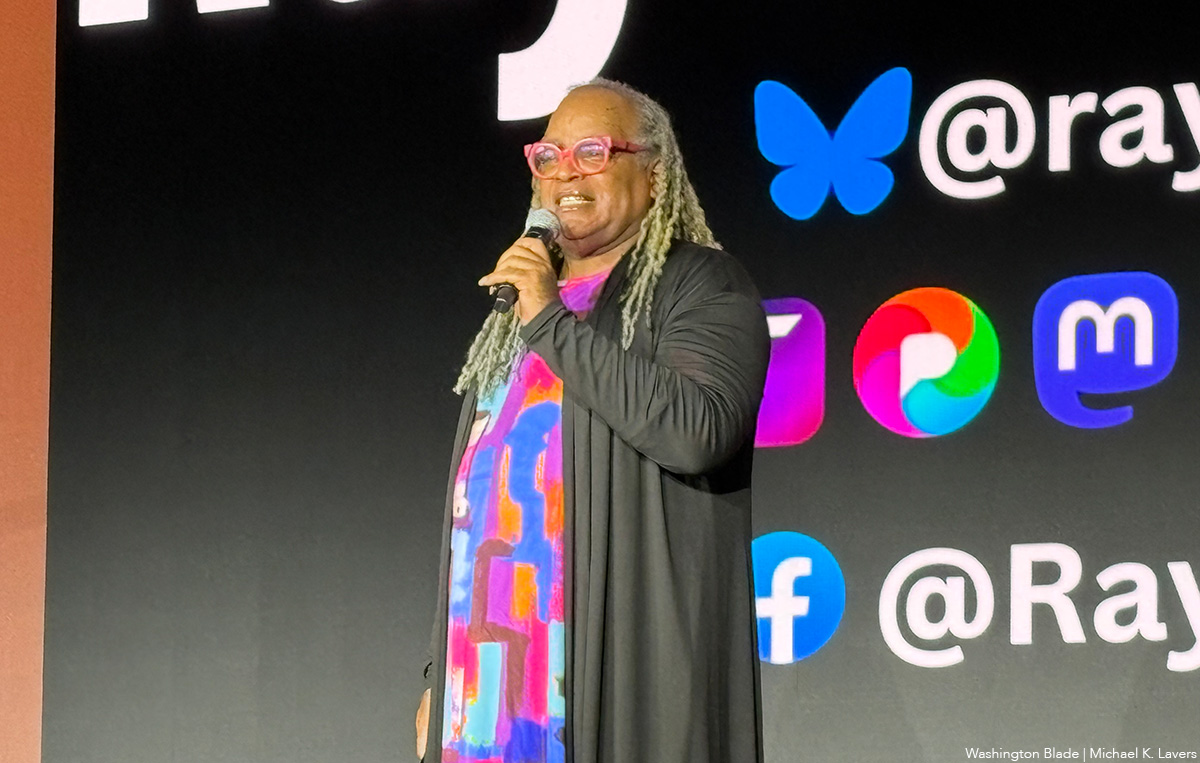
LGBTQ groups in D.C. and elsewhere plan to use Black History Month as an opportunity to commemorate and celebrate Black lives and experiences.
Team Rayceen Productions has no specific events planned, but co-founder Rayceen Pendarvis will attend many functions around D.C. this month.
Pendarvis, a longtime voice in the LGBTQ community in D.C. will be moderating a panel at Dupont Underground on Sunday. The event, “Every (Body) Wants to Be a Showgirl,” will feature art from Black burlesque artists from around the country. Pendarvis on Feb. 23 will attend the showing of multimedia play at the Lincoln Theatre that commemorates the life of James Baldwin.
Equality Virginia plans to prioritize Black voices through a weekly online series, and community-based story telling. The online digital series will center Black LGBTQ voices, specifically trailblazers and activists, and contemporary Black queer and transgender people.
Narissa Rahaman, Equality Virginia’s executive director, stressed the importance of the Black queer community to the overall Pride movement, and said “Equality Virginia is proud to center those voices in our work this month and beyond.”
The Capital Pride Alliance, which hosts Pride events in D.C., has an alliance with the Center for Black Equity, which brings Black Pride to D.C. over Memorial Day weekend. The National LGBTQ Task Force has no specific Black History Month events planned, but plans to participate in online collaborations.
Cathy Renna, the Task Force’s director of communications, told the Washington Blade the organization remains committed to uplifting Black voices. “Our priority is keeping this at the forefront everyday,” she said.
The D.C. LGBTQ+ Community Center is also hosting a series of Black History Month events.
The D.C. Public Library earlier this year launched “Freedom and Resistance,” an exhibition that celebrates Black History Month and Martin Luther King Jr. It will remain on display until the middle of March at the Martin Luther King Jr. Memorial Library at 901 G St., N.W.
District of Columbia
U.S. Attorney’s Office drops hate crime charge in anti-gay assault
Case remains under investigation and ‘further charges’ could come

D.C. police announced on Feb. 9 that they had arrested two days earlier on Feb. 7 a Germantown, Md., man on a charge of simple assault with a hate crime designation after the man allegedly assaulted a gay man at 14th and Q Streets, N.W., while using “homophobic slurs.”
But D.C. Superior Court records show that prosecutors with the Office of the U.S. Attorney for D.C., which prosecutes D.C. violent crime cases, charged the arrested man only with simple assault without a hate crime designation.
In response to a request by the Washington Blade for the reason why the hate crime designation was dropped, a spokesperson for the U.S. Attorney’s office provided this response: “We continue to investigate this matter and make no mistake: should the evidence call for further charges, we will not hesitate to charge them.”
In a statement announcing the arrest in this case, D.C. police stated, “On Saturday, February 7, 2026, at approximately 7:45 p.m. the victim and suspect were in the 1500 block of 14th Street, Northwest. The suspect requested a ‘high five’ from the victim. The victim declined and continued walking,” the statement says.
“The suspect assaulted the victim and used homophobic slurs,” the police statement continues. “The suspect was apprehended by responding officers.”
It adds that 26-year-old Dean Edmundson of Germantown, Md. “was arrested and charged with Simple Assault (Hate/Bias).” The statement also adds, “A designation as a hate crime by MPD does not mean that prosecutors will prosecute it as a hate crime.”
Under D.C.’s Bias Related Crime Act of 1989, penalties for crimes motivated by prejudice against individuals based on race, religion, sexual orientation, gender identity, disability, and homelessness can be enhanced by a court upon conviction by one and a half times greater than the penalty of the underlying crime.
Prosecutors in the past both in D.C. and other states have said they sometimes decide not to include a hate crime designation in assault cases if they don’t think the evidence is sufficient to obtain a conviction by a jury. In some instances, prosecutors have said they were concerned that a skeptical jury might decide to find a defendant not guilty of the underlying assault charge if they did not believe a motive of hate was involved.
A more detailed arrest affidavit filed by D.C. police in Superior Court appears to support the charge of a hate crime designation.
“The victim stated that they refused to High-Five Defendant Edmondson, which, upon that happening, Defendant Edmondson started walking behind both the victim and witness, calling the victim, “bald, ugly, and gay,” the arrest affidavit states.
“The victim stated that upon being called that, Defendant Edmundson pushed the victim with both hands, shoving them, causing the victim to feel the force of the push,” the affidavit continues. “The victim stated that they felt offended and that they were also gay,” it says.
New York
N.Y. lawmaker vows ‘Pride flag will fly again’ at Stonewall Monument
After a Jan. 21 policy shift, Pride flags were banned at national parks, prompting backlash from Bottcher and LGBTQ advocates.

Hours after news broke that the National Park Service would no longer allow Pride flags to fly at the Stonewall National Monument — the birthplace of the modern LGBTQ rights movement in the United States — the Washington Blade spoke with New York State Sen. Erik Bottcher, who represents the area surrounding the Stonewall Inn and the national monument.
During the interview, Bottcher, who is gay, spoke about the policy change and outlined steps he plans to take in the coming days to push for its reversal.
“This is another act of erasure,” Bottcher told the Blade. “It’s a cowardly attempt to rewrite history and to intimidate our community. This is Stonewall — it’s where we fought back, where we ignited a global movement for equality — and we refuse to go back. We’re not going to accept these acts of erasure.”
The Stonewall Inn became a flashpoint in 1969 after NYPD officers raided the bar, part of a longstanding pattern of police harassment of LGBTQ spaces. The raid sparked days of protest and resistance along Christopher Street, now widely recognized as the catalyst for the modern LGBTQ rights movement.
While the events are often referred to as the “Stonewall Riots,” many activists and historians prefer the term “Stonewall Uprising,” emphasizing that the resistance was a response to systemic oppression rather than senseless violence. LGBTQ patrons and community members fought back — shouting “Gay Power!” and “Liberate Christopher Street!” — as crowds grew and frustration with police abuse boiled over.
Since the uprising, LGBTQ people and allies have gathered annually in June to commemorate Stonewall and to celebrate Pride, honoring the movement that placed LGBTQ voices at the center of the fight for equality.
In June 2016, then President Barack Obama officially designated the space as the Stonewall National Monument, making it the United States’s first national monument designated for an LGBTQ historic site.
Now, nearly 10 years later, President Trump’s appointed NPS acting director Jessica Bowron changed policy on Jan. 21 regarding which flags are allowed to be flown in national parks. Many, including Bottcher, say this is part of a larger targeted and deliberate attempt by the administration to erase LGBTQ history.
“It’s clear they’re making a conscious decision to erase the symbols of our community from a monument to our community’s struggle,” he said. “This is a calculated and premeditated decision, and it could be — and should be — reversed.”
“Let’s be clear,” Bottcher added, “they wish we didn’t exist … But we’re not going anywhere. We refuse to go back into the shadows.”
When asked why it is critical to challenge the policy, Bottcher emphasized the importance of visibility in preserving LGBTQ history.
“This is why it’s so important that we not let this stand,” he said. “Visibility is critical. When people see us, learn about us, and get to know us, that’s how we break down prejudice and stereotypes. We cannot allow them to push us back into the shadows.”
Other LGBTQ leaders and elected officials were quick to condemn the removal of the Pride flag, which had flown since the site’s official designation as a national monument.
New York City Mayor Zohran Mamdani called the decision “outrageous.”
“I am outraged by the removal of the Rainbow Pride Flag from Stonewall National Monument,” Mamdani said in a statement. “New York is the birthplace of the modern LGBTQ+ rights movement, and no act of erasure will ever change or silence that history.”
“Our city has a duty not just to honor this legacy, but to live up to it,” he added. “I will always fight for a New York City that invests in our LGBTQ+ community, defends their dignity, and protects every one of our neighbors — without exception.”
Senate Minority Leader Chuck Schumer also condemned the move.
“The removal of the Pride Rainbow Flag from the Stonewall National Monument is a deeply outrageous action that must be reversed immediately,” Schumer said in a statement to The Advocate. “Stonewall is a landmark because it is the birthplace of the modern LGBTQ rights movement, and symbols of that legacy belong there by both history and principle.”
Cathy Renna, communications director for the National LGBTQ Task Force, said the flag’s removal will not erase the movement it represents.
“They can take down a flag, but they can’t take down our history,” Renna said. “Stonewall is sacred ground rooted in resistance, liberation, and the legacy of trans and queer trailblazers who changed the course of history.”
Human Rights Campaign National Press Secretary Brandon Wolf echoed that sentiment.
“Bad news for the Trump administration: these colors don’t run,” Wolf said. “The Stonewall Inn and Visitors Center are privately owned, their flags are still flying high, and that community is just as queer today as it was yesterday.”
Tyler Hack, executive director of the Christopher Street Project, said the removal was aimed squarely at LGBTQ visibility.
“The Pride flag was removed from Stonewall for one reason: to further erase queer and trans people from public life,” Hack said. “Stonewall marks the moment when queer and trans people fought back and demanded dignity. Our history is not theirs to erase.”
Bottcher closed with a promise to his constituents — and to the broader LGBTQ community — that the Pride flag’s removal would not be permanent.
“We will not be erased. We will not be silenced,” he said. “And the Pride flag will fly again at the birthplace of our movement.”
-

 Colombia5 days ago
Colombia5 days agoLGBTQ Venezuelans in Colombia uncertain about homeland’s future
-

 Sports5 days ago
Sports5 days agoBlade, Pride House LA announce 2028 Olympics partnership
-

 Calendar5 days ago
Calendar5 days agoCalendar: February 6-12
-

 District of Columbia5 days ago
District of Columbia5 days agoD.C. non-profits find creative ways to aid the unhoused amid funding cuts





